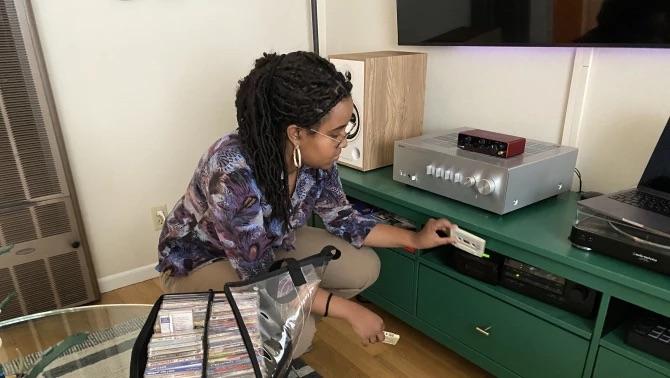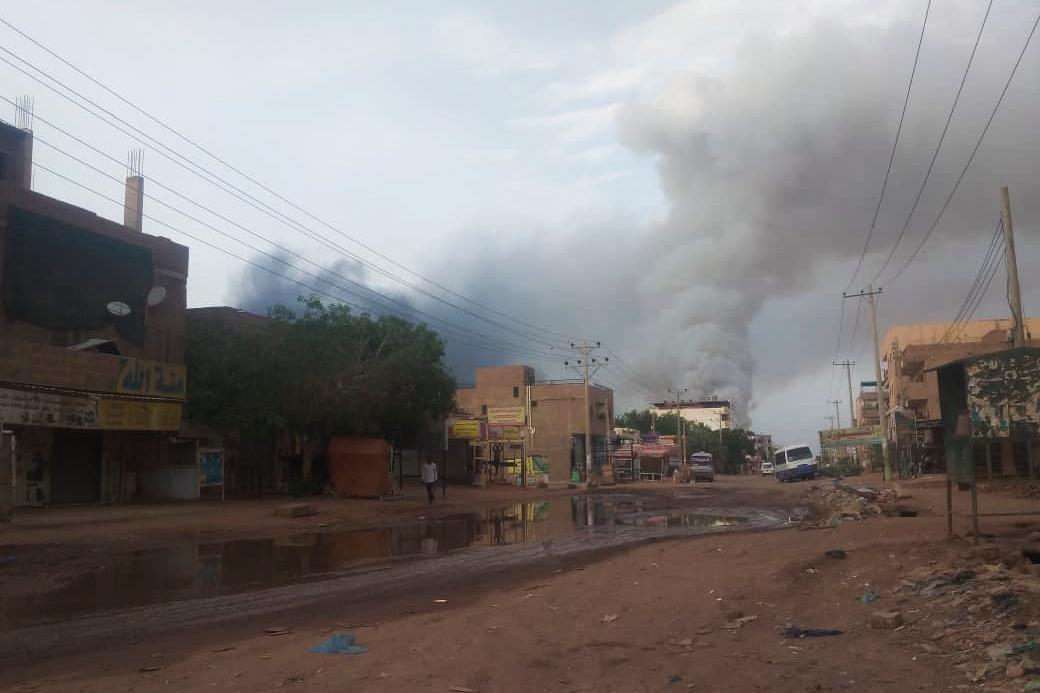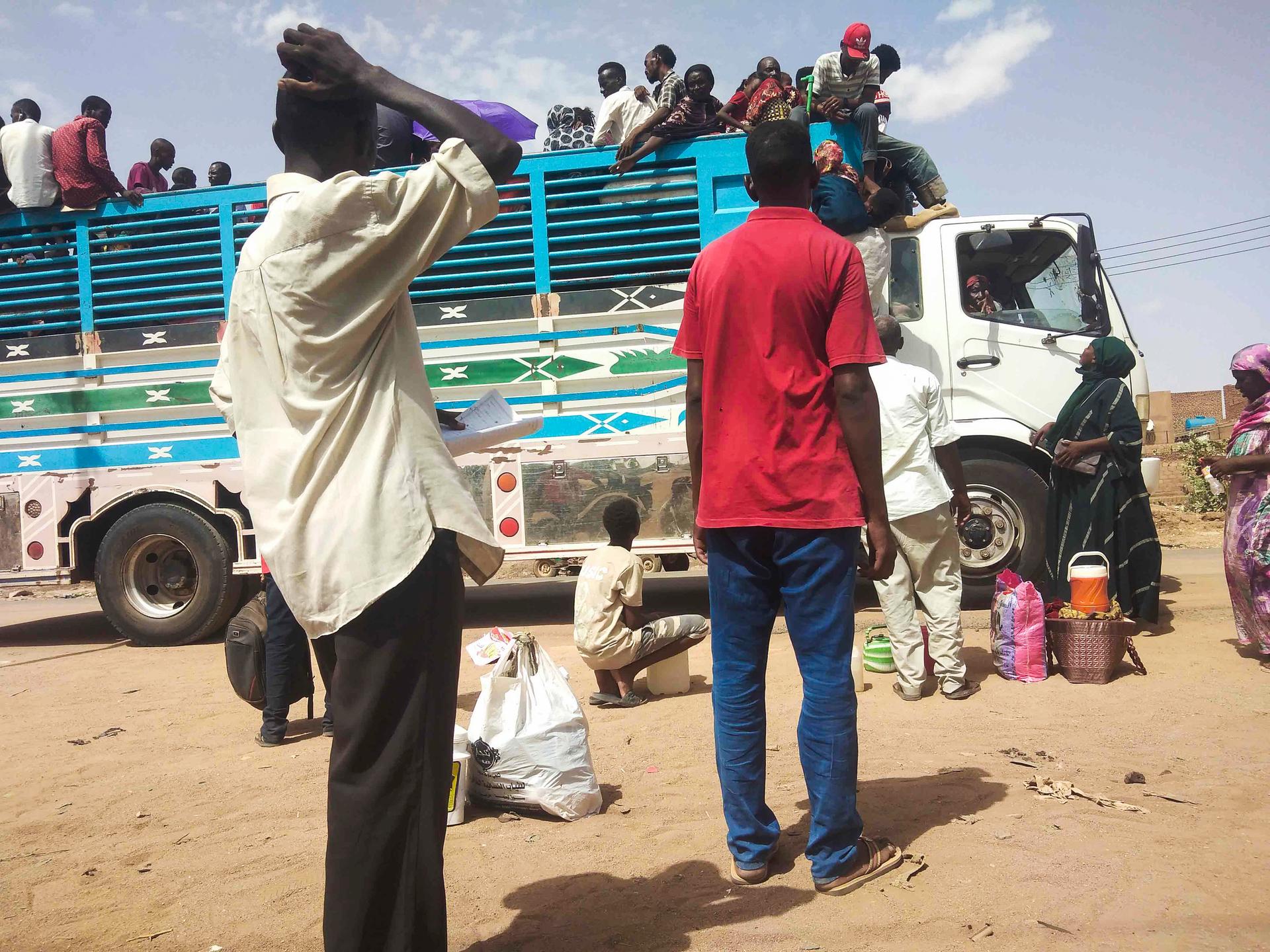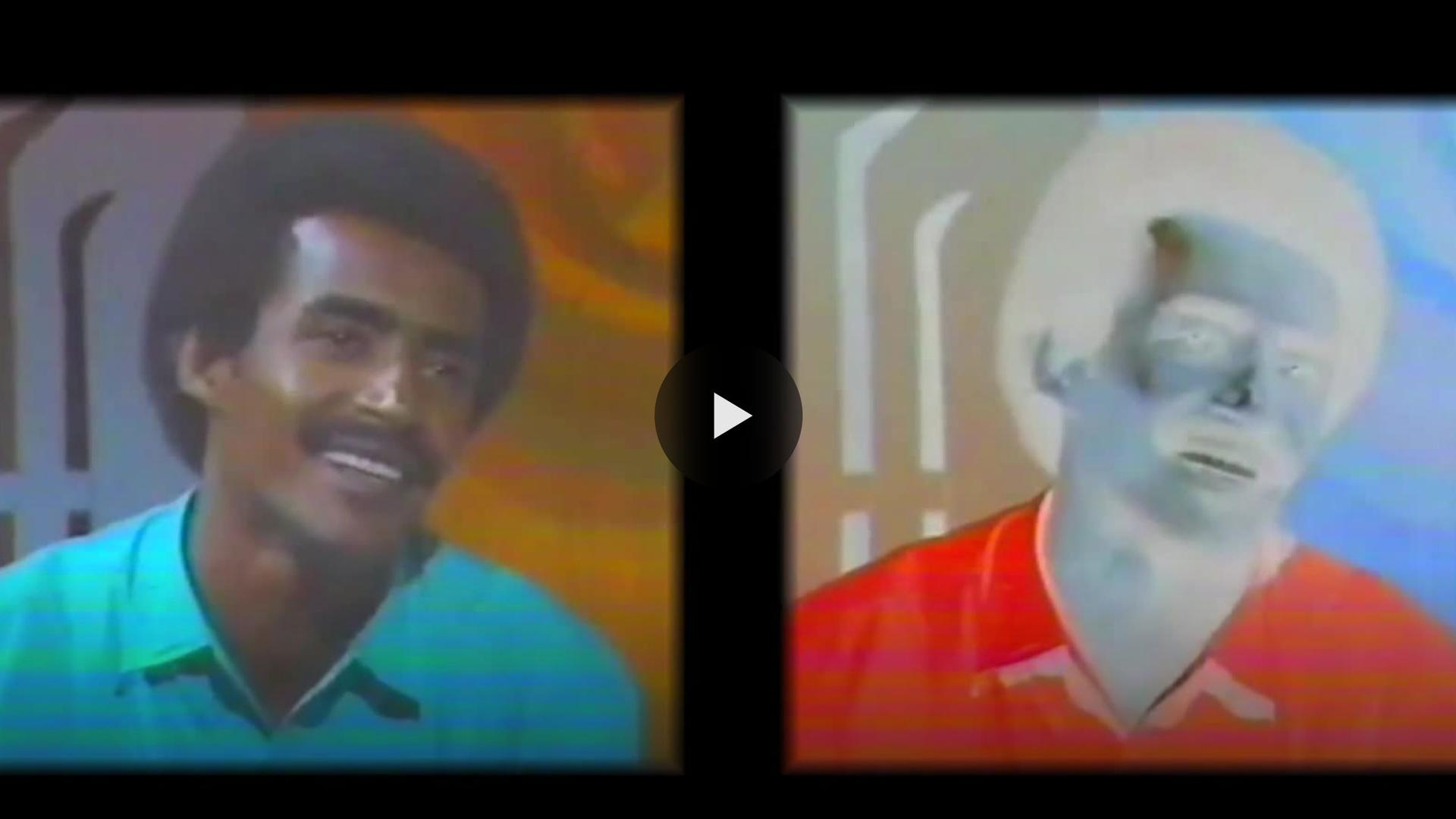In her home in Oakland, California, Haneen Sidahmed pulled a plastic container of cassette tapes out from a shelf in her living room.
She has various collections — some are from her mom and dad while others she bought herself from the open-air market Souq Omdurman in Khartoum, Sudan’s capital.
“So we have some Samira Dunya, ‘Kalam Al Nas.’ We have Isam Mohamed Noor. We have Ahmed Almustafa, ‘Sameeri,’” she said, reading off some of the names of stars and their songs.
Sidahmed is a communications specialist at a university by day. But by night, she’s busy archiving and digitizing tapes of Sudanese music in a project dubbed the Sudan Tapes Archive. The project aims to “preserve Sudan’s sonic imprint.”

She said her identity is a main motivation for the project. Sidahmed is a true diaspora kid. She was born in Germany, and raised in Saudi Arabia and Sacramento, California. Her parents always played their music wherever they went as a consistent throughline during their travels. Many of these songs date back to the 1960s.
Her favorite song growing up, she said, was “Rahmak ya Malak,” on a tape called “Ya ra’i3,” by Ahmed Elmustafa. She remembers listening to that song a lot in the old 1991 Camry her parents first got when they emigrated to the US.
“So it was the tape that was played the most, and it was like, I remember it was side A, song number one.”
Sidahmed said her mom especially loved the celebratory wedding songs.
“This one is iconic,” she exclaimed as she pulled out a tape with a smiling Sudanese woman on the cover. The tape features Gisma, a singer who is essentially part of a genre known as aghani al-banat or women’s music, she said.
“A lot of this music is very integral to the Sudanese wedding process,” Sidahmed said. “So the song ‘Al-‘Adeel waz-Zeyn’ is played in every Sudanese wedding,” and it’s a favorite, she added.
At first, the archiving was a personal project for Sidahmed. But as more and more people discovered her Soundcloud page, where she posted the music, she knew this was bigger.
“It became a huge source of nostalgia for people,” she said.
“A lot of people were commenting like, ‘Oh my god, my dad has passed away, but he used to play this tape, and I’ve been looking for it for so long!’”
Sidahmed said some people connect to the music as a way to reclaim forgotten memories — a lot of this music has not been digitized and has yet to appear on streaming platforms.
“The thing with Sudan is, there isn’t this huge entertainment industry where there’s not a lot of cultural exports.”
Having access to this music, she said, has helped her feel more anchored in her identity.
In April 2023, war broke out in Sudan, causing mass devastation. Homes and banks were looted, factories and buildings burned, and iconic sites and centers of culture were a target, too — including museums, booksellers and libraries.
Rapid Support Services, or RSF militia, attacked and took control of the country’s main broadcaster, the Sudan National Broadcasting Corporation, which is home to a cherished music history library.

While the army has now taken it back, it remains unclear how much damage has been done to the library. Observers and historians fear the worst — that the musical memory of Sudan is possibly at risk.
Journalist and historian Ismail Kushkush has turned to Sidahmed’s Sudan Tapes Archive as a resource. A friend brought it to his attention a few years ago.
Kushkush said he likes listening to praise songs from the collection.
Kushkush was in Sudan as the war began and said that many of the shops in the iconic Souq Omduram market have been ransacked, including the ones on Doctor’s Street, which was known for many of those music shops.
“One can only imagine these are places that have been destroyed. Audio cassettes in private homes, as homes have been looted. There is a need to collect, digitize and preserve these recordings so that Sudan’s history is not lost,” he said.
More than a million Sudanese have fled to neighboring countries, including whole extended families, to countries like Egypt, the Emirates or Uganda.

The project has taken on heightened significance against the backdrop of war. Many Sudanese people in the diaspora, including Sidahmed, do not know when or if they will ever return to Sudan.
“So, now there’s this undercurrent of … our heritage being actively destroyed,” she said.
“These initiatives — which are going to happen mostly in the diaspora — are probably going to play an integral role in preserving Sudanese culture. And I think it feels more urgent and serious for me now,” she said.
She said she is thinking most about generations of kids in the diaspora who are not going to have the same access to their home country.
“They’re not going to have the summer trips or the December trips back to Sudan,” she said. “I think there’s going to be this sense of being unanchored.”
For Sidahmed, the essence of archiving has been the anchor she always sought.
“I had the luxury of going back to Sudan to help facilitate that. So now, it’s going to be things like this that anchor the young generations moving forward.”
